 Travel
Travel  Travel
Travel  Creepy
Creepy 10 Haunted Places in Alabama
 History
History Top 10 Tragic Facts about England’s 9 Days Queen
 Food
Food 10 Weird Foods Inspired by Your Favorite Movies
 Religion
Religion 10 Mind-Blowing Claims and Messages Hidden in the Bible Code
 Facts
Facts 10 Things You Never Knew about the History of Gambling
 Weird Stuff
Weird Stuff 10 Cool and Creepy Facts about Collecting Tears
 Humans
Humans The Ten Most Lethal Gunslingers of the Old West
 Misconceptions
Misconceptions 10 Phony Myths and Urban Legends That Just Won’t Die
 History
History 10 Amazing Roman Epitaphs
 Travel
Travel Top 10 Religious Architectural Marvels
 Creepy
Creepy 10 Haunted Places in Alabama
 History
History Top 10 Tragic Facts about England’s 9 Days Queen
Who's Behind Listverse?

Jamie Frater
Head Editor
Jamie founded Listverse due to an insatiable desire to share fascinating, obscure, and bizarre facts. He has been a guest speaker on numerous national radio and television stations and is a five time published author.
More About Us Food
Food 10 Weird Foods Inspired by Your Favorite Movies
 Religion
Religion 10 Mind-Blowing Claims and Messages Hidden in the Bible Code
 Facts
Facts 10 Things You Never Knew about the History of Gambling
 Weird Stuff
Weird Stuff 10 Cool and Creepy Facts about Collecting Tears
 Humans
Humans The Ten Most Lethal Gunslingers of the Old West
 Misconceptions
Misconceptions 10 Phony Myths and Urban Legends That Just Won’t Die
 History
History 10 Amazing Roman Epitaphs
10 Conspiracy Theories Surrounding Brexit
The Brexit vote held on June 23, 2016, was one of the most monumental votes in political history. Unlike most elections or referenda, the result of the UK’s decision to leave the European Union will have major implications for the remaining 27 member states and the world at large, even by the standards of our increasingly globalized planet.
Such a major political shift will inevitably be shrouded in conspiracy theories, some more well-founded than others. Below are ten of the prevailing theories about the Brexit process and what lies beneath. Make of them what you will.
10 EU Superstate
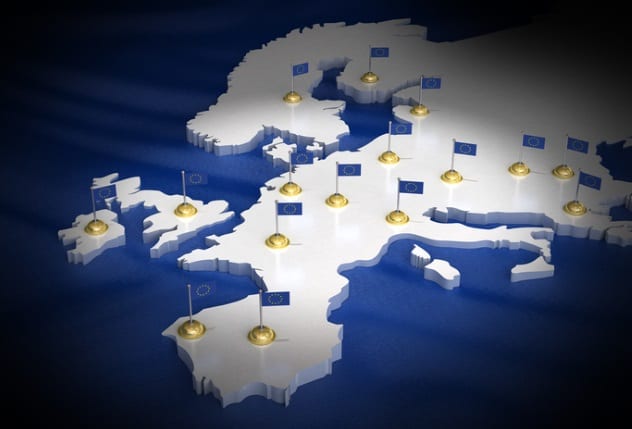
One of the foremost theories surrounding Brexit, and the European Union at large, is that the EU is gradually shifting toward creating a single European country. To understand this theory, you need to know that the EU was formed out of what was originally the European Coal and Steel Community, which was formed after World War II. After witnessing the devastation of the war, people all over Europe wanted to guarantee it would never happen again. One way of doing this was to link their coal and steel markets, which would help repair the damage done in the war and prevent countries from manufacturing and selling weapons to each other’s enemies.
By the time the actual European Union itself was created in 1993, Europe was beginning to function in many ways as one country. Money was pooled, officials were elected, laws and standards were aligned, and international projects were undertaken. Euroskeptics, Brexiteers included, argue that we are inching ever closer to a European superstate, a homogeneous, culture-less nation to be ruled by unelected officials in Brussels. The European courts, the European anthem, the Euro currency, and the recent talk of creating a European army are further proof of this. But there are many problems with this theory.[1]
Firstly, many of the quotes believers use about the “founding fathers” wanting to “unite Europe under one government” are simply made up. Secondly, it’s been almost 70 years, and we still have no superstate. Why a bunch of men would want to create a country they will never see to hand it off to people that haven’t been born yet is unclear. The theory also ignores the fact that we have voted in EU elections since 1979 (a right that would only be expanded by creating more government), we would have 12 royal families and 24 languages, and that so many constitutions expressly forbid the EU having full control over the rule of law that it would take decades to achieve, again begging the question of why politicians would work so hard to create a country they won’t live to see or control.
This theory recently picked up again after Angela Merkel’s potential coalition partner called for a “United States of Europe,” which is a perfect sound bite when you ignore his subsequent comments about individual countries being members.
9 Punishment

A far more plausible theory is that the EU aims to punish the UK for their decision to leave. One aspect of this is that the other members won’t want to leave if they see the UK decline into chaos and recession. On the other hand, once the UK leaves, it will become a competitor. The idea that the EU should allow the UK to “have its cake and eat it too” by giving them all the benefits of membership without putting in any of the work is ridiculous. That would be like your business partner splitting away from you and you allowing them to continue operating on your site, with your equipment, employees, customers, and profits.
The EU and the UK are simply doing the logical thing and negotiating, just as the EU would do with any other non-EU nation. The EU’s job here is to get the best deal for itself and its citizens, which does not involve giving everything away for no reason.[2] If the UK hadn’t conceded on every major issue so far, one could easily argue that they were punishing the EU. The real issue here is whether you consider the aim of the EU’s relentless negotiating to be to hurt the UK or to not hurt itself.
8 United Ireland
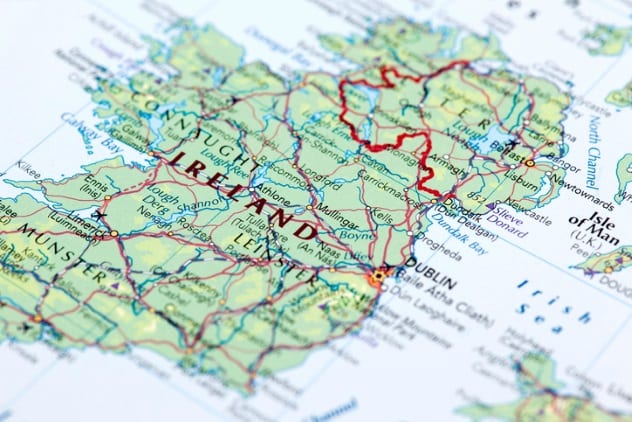
In 1919, the majority of Ireland declared independence from the UK, although Northern Ireland remained. The UK’s decision to leave the EU has resulted in a major problem for both islands. If the UK leaves the EU without a free trade deal, a hard border between Ireland and Northern Ireland must be put up. Given the emotional and historical context, this is unacceptable to pretty much everyone on the island. But a free trade deal means accepting EU regulations and free movement of people, two of the main reasons UK residents voted Leave, meaning the winning Leave campaigners will not accept such a deal. Another option is to have Northern Ireland operate as part of the EU and create a sea border between Ireland and Britain. But for the Unionist majority in Northern Ireland, such a move would be a major step toward Irish reunification.
Like Scotland, Northern Ireland voted to remain but was outweighed by votes in England and Wales. However, the leading political party, the DUP, is pro-leave and has enough MPs to take down Theresa May’s government if she doesn’t do what they say. This has resulted in a situation where they are simultaneously forcing a hard Brexit on their own constituents while also blocking Brexit for those in Britain. Since the government of the republic can veto Brexit negotiations from progressing to stage two, they have received a guarantee that no deal involving a hard border can go through.
All of this, combined with some cloak-and-dagger meetings in Dublin, has led to accusations by many, including the first minister of Northern Ireland, that the Irish government is secretly working toward uniting Ireland by stealth.[3] Given that only 14 percent of people in the republic oppose reunification, with many Irish ministers openly advocating for it, this is not a huge leap to make. The only question is whether the Irish government, and possibly Europe, are really working toward this or simply trying to avoid a return to the extreme violence that placed Ireland in the global headlines for so many years.
7 Fake News

Much like the election of Donald Trump, the success of the Leave campaign has been marred by accusations of fake news. There are plenty of arguments, advertisements, and viral social media posts you could point to to support this. Among the most famous are the statement that £350 million a week would go to the National Health Service (NHS), a claim immediately withdrawn the following day; the circulation of a misrepresented photo of a Muslim woman walking away from the Westminster terrorist attack looking at her phone; headlines that read “Queen Backs Brexit”; and of course, Russian bots.
The University of Edinburgh found over 400 Twitter accounts that were confirmed to have been used as Russian propaganda tools during the referendum, while Facebook has said that it did happen but won’t release statistics, simply saying it was not significant.[4] However, that is also how it initially described the pro-Trump Russian ads, which were later revealed to have reached 126 million people. 139 million people voted in the 2016 US election. Whether fake news or Russian interference were used in the referendum is not up for debate; it is a simple fact. But questions remain about its extent, its influence, and who was involved, with people like multimillionaire Aaron Banks currently under investigation.
6 The Poison Chalice

Despite saying he would remain as prime minister regardless of the outcome of the vote, David Cameron resigned the very next day. Visibly emotional at the end of his six-year tenure, Cameron said that he will leave it to his successor to trigger Article 50 and begin the Brexit process.
Enter the Poison Chalice. As soon as Cameron resigned, pretty much everyone assumed that adamant Brexiteer and “British Donald Trump” Boris Johnson would succeed him. And it soon became clear that Johnson was screwed, for he was left with three pretty unappealing options: to assume the office of prime minister but not trigger Article 50, which would make him the biggest hypocrite in Britain; to trigger it and deal with the chaos we see unfolding now, which would essentially end his career and earn him an unenviable place in British history; or to pass on the position, making him look weak and even more incompetent than he already does.
At a rally where he was expected to announce his bid for prime minister, Johnson in fact announced he would not run after his close friend Michael Gove described him as incapable. Johnson supporters were furious that he pulled out, and his position hasn’t improved since. As Theresa May’s secretary of foreign affairs, Johnson has made gaffe after gaffe, such as putting the life of an imprisoned British-Iranian journalist at risk and telling his Irish counterpart he wanted to get past the whole Northern Ireland thing and get to the “real meat” of the issues. Despite the fact that his approval ratings have plummeted, Johnson has said that he still hopes to be prime minister . . . but only after all this Brexit kerfuffle is over.[5]
5 Derailing
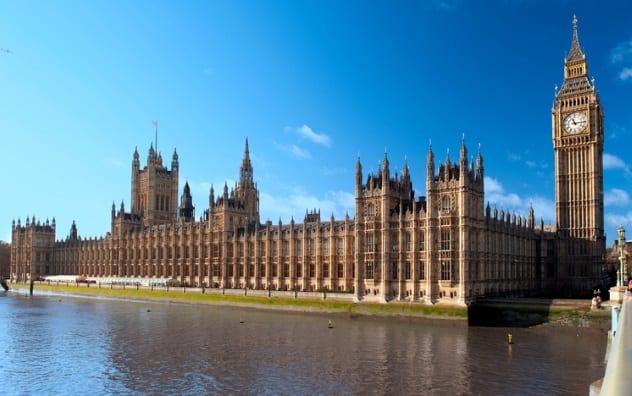
One of the most prominent Brexit conspiracies is that the so-called establishment is working behind the scenes to derail the whole process and keep the UK in the EU. Numerous high-ranking officials, such as Germany’s finance minister Wolfgang Schauble and chief EU negotiator Michel Barnier, have stated that the UK can revoke Article 50 and stay in the EU right up until the moment they leave, making this another theory that is entirely plausible.
Given that the vote was so close, with Leave conceding before realizing they had won 51.89 percent of the vote, not to mention the regret that many voters have expressed since, it isn’t just possible but likely that the majority will shift to Remain by the time the UK is set to leave in 2019. Add to this the fact that people over 65, who made up almost one in four voters, were the most pro-Brexit group, with 64 percent voting Leave, and the pendulum will swing even further toward Remain as many of these voters emigrate to Heaven.
Many politicians have said that the referendum was advisory and nonbinding, former prime minister Tony Blair has called for a second referendum, and the opposing Labour Party removed a reference to respecting the result in parliamentary documents.[6] The concession on the Irish border also means their Brexit options are now severely limited. Theresa May herself was pro-Remain and has refused to say how she would vote in a new referendum, which begs the question: Are the chaotic negotiations just a ruse to win support for a second referendum?
4 Voter Suppression
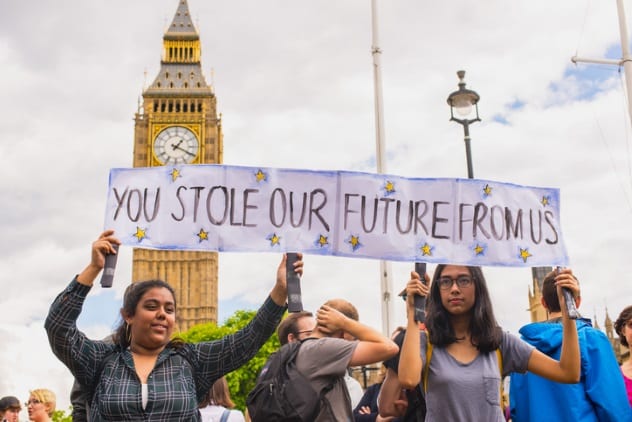
Before, during, and after the vote, both sides accused the government of voter suppression. Mainly on the younger, Remain side of the spectrum, 175,000 people were dismayed to find out that the vote was being held the day after the famous Glastonbury festival. Euroskeptic MP Steve Baker dismissed suppression theories but maybe overcompensated a little by saying the government has never been able to pull off a conspiracy. Both sides also accused the government, and later foreign hackers, of crashing the voter registration website in the final hours. The last-minute rush was mainly due to younger voters logging on, though the government extended the deadline by 48 hours after the crash.
Brits living abroad also felt cheated, as anyone living out of the country for over 15 years was not allowed to vote.[7] While this was the law well before the vote took place, it was due to be changed but never was. It follows logically that British emigrants would be pro-Remain specifically to retain their right to live and work abroad, which is why 72 percent were in favor of Remain and have launched legal challenges since the vote.
3 MI5 vs. Pens
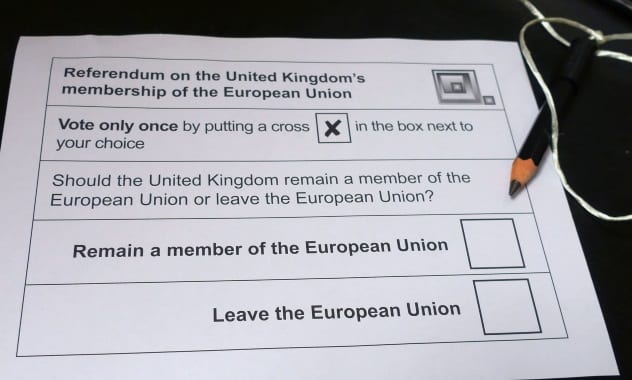
During the counting of the Scottish independence vote in September 2014, a generic video of votes being counted quickly drew ire and accusations of rigging from the pro-independence Yes voters, as it revealed a pile of votes clearly marked “Yes” but sitting on the “No” table. Somewhat ironically, Russia claimed that this vote was rigged and did not meet international standards, while an online petition calling for a recount garnered over 100,000 signatures but went nowhere.
On the day of the Brexit vote, Leavers had similar concerns that votes were going to be changed, this time literally. All UK polling stations provide pencils for voters, and Twitter was awash with people urging voters to use pens, warning that MI5 planned to change the votes manually.[8] One woman even claimed that a Remain voter had called the police because she was lending her pen to other Leave voters. Exactly where this theory sprang from is unclear, but it seems MI5 either had no plans to change votes or were thwarted by the mighty pen.
2 Remain Plants
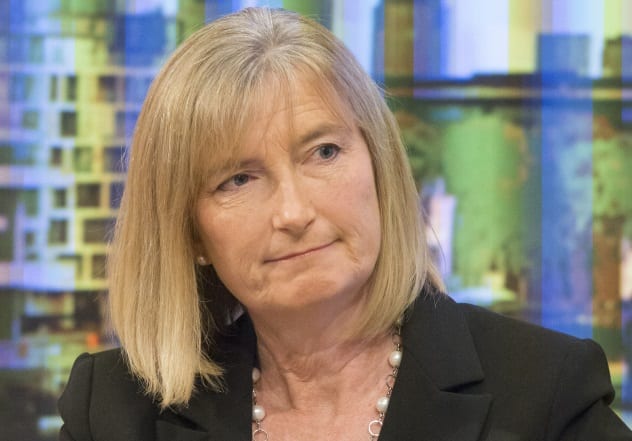
After the Vote Leave campaign revealed its now-infamous £350 million a week to the NHS, pro-Leave MP Sarah Wollaston defected and started to campaign for the Remain side.[9] Just moments after this was announced, numerous Leave campaigners jumped in to make sure everyone was aware that she was a Remain plant the entire time and that this was the plan all along. Others suggested that she had been bribed or ordered to switch sides.
Soon after she announced the switch, Wollaston claimed that there were many others in the Leave campaign who were beginning to doubt their cause, fueling speculation that Remainers had been planning a mass exodus the entire time as a way to discredit the Leave campaign at the last minute. Baroness Sayeeda Warsi faced similar accusations when she moved to Remain, although given the context of the referendum, a Muslim woman switching sides wasn’t likely to convince too many Leave voters to follow. Plants or not, no walkout occurred, and their defections had little influence, if any, on the voters.
1 Robert Mercer
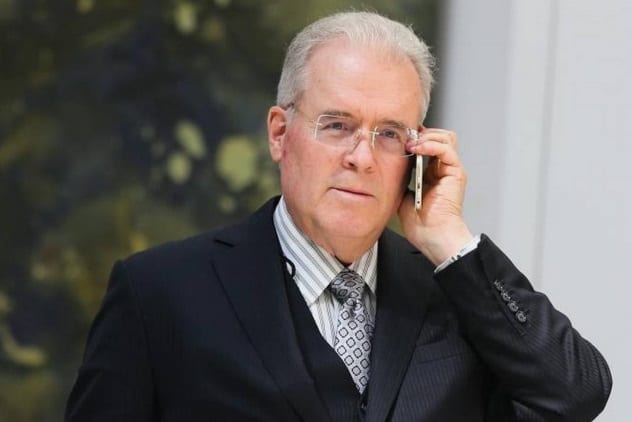
Robert Mercer is is a US billionaire and was the biggest donor to Trump’s election campaign. Mercer is the owner and intellectual property owner of two major data firms, the American-owned, UK-based Cambridge Analytica and the Canada-based AggregateIQ.[10] Steve Bannon, who was the Trump campaign’s “CEO,” is close friends with Nigel Farage and was at one point the vice president of Cambridge Analytica, which set up the Britain-based data firm SCL Elections. Farage is also close friends with Mercer, which may explain why Cambridge Analytica decided to provide their services to the Trump campaign for free.
AggregateIQ, on the other hand, was paid £3.9 million by the Vote Leave campaign, half of their total funding. Vote Leave also donated £625,000 to a young fashion student named Darren Grimes in the final week of the campaign as well as £100,000 to the pro-Leave group Veterans for Britain. AggregateIQ received an additional £50,000 from Grimes as well as £32,750 from the DUP.
Since the UK has laws preventing foreign companies from interfering in their elections, caps campaign expenditure at £700,000, and requires coordinating campaigns to jointly claim their expenses, there were accusations that this messy mishmash of donations and freebies was simply to skirt the law. Since Mercer owns the intellectual property of Aggregate IQ, Cambridge Analytica was able to use all of their data for free as well. One could argue that using the same data is not coordination, but remember that a leaked e-mail from MP Steve Baker, the same guy who denied the voter suppression theories, revealed that he said Vote Leave could spend “as much money as is necessary to win” by using companies that are legally separate from one another. Mercer and his data firms are now subject to investigation in both the US and the UK and have threatened the reporter who broke this story with legal action.
You can follow Simon on Twitter here.
For more conspiracy theories, check out Top 10 Nutty Conspiracy Theories Involving Celebrities and Top 10 Enduring Conspiracy Theories About Tragic Events.








